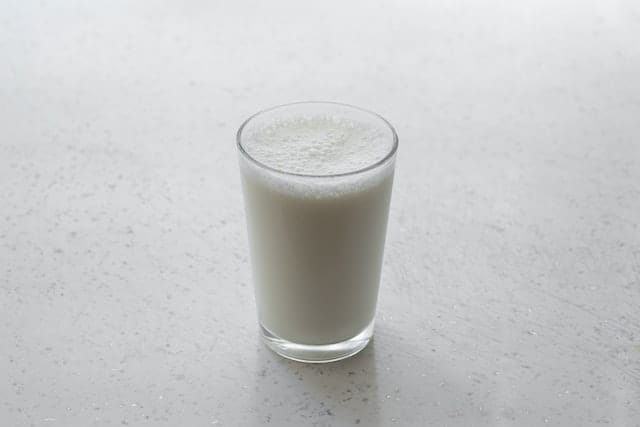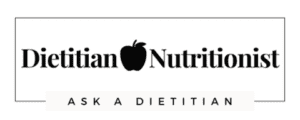If you are trying to lose weight, you might wonder if milk will help you or hurt you. A lot of people try cutting out dairy products because of things they have read or been told by other people, but the truth is, dairy is a really important part of a healthy diet- whether you are trying to lose weight, gain weight, or maintain your weight.
Milk can be a great drink option to consume when you are trying to lose weight. Aside from the calcium and other nutrients it provides for your body, milk also has a great balance of carbohydrates and protein to keep your blood sugars stabilized and help you feel full and satisfied, which decreases unhealthy cravings! If you cannot consume milk due to allergies or intolerances, there are lactose-free options and milk substitutes like soy milk that are very comparable!
Read on for more information about the benefits of drinking milk, and whether or not to avoid it when dieting or trying to lose weight.

Is Milk Healthy for Weight Loss?
Many people make the mistake of cutting out a bunch of foods and restricting their intake when they are trying to lose weight. The problem with cutting out foods and restricting calories is that it can lead to nutrient deficiencies and even stunt your weight loss progress.
I recommend that people focus more on nourishing their body and providing a balance of foods from all food groups- including dairy! As you give your body what it needs when it needs it, it will feel comfortable enough to let go of excess weight it doesn’t need and you will settle in at a weight that is healthy for you.
Milk is a great way to meet your body’s dairy needs for the day. Other dairy products like cheese and yogurt can also be great additions to a healthy diet. Choose lower-fat dairy options when available to minimize your intake of saturated fats.
Does Milk Make You Gain Weight?
There are a lot of people whose bodies don’t handle regular cows milk super well. Lactose intolerance, milk allergies, and intolerances and allergies to other aspects of milk are fairly common. If you think this is you, you might feel bloated after consuming dairy, which might make you feel like milk is causing you to gain weight.
Consuming dairy doesn’t necessarily make your body store a ton of excess fat, but the bloating and other side effects of eating dairy is definitely not desirable. There may be certain dairy products like cheese or yogurt that your body handles a little bit better than milk. Your side effects also might vary based on the amount of dairy you are consuming.
I recommend paying attention to your body and figuring out how it responds to different foods. It is also very helpful to work with a dietitian to make sure you are still getting all of the nutrients your body needs, especially if dairy is a no-go for you.
Can You Drink Milk on a Diet?
Some diets like Whole 30 or Keto encourage cutting out milk, but unless your body doesn’t handle milk properly, cutting it out is really not necessary to lose weight. In fact, this highlights one of the biggest problems with diets: they are overly restrictive. To be honest, our brains don’t handle restriction well, and on top of that, our bodies need a variety of nutrients from all sorts of foods, so our bodies don’t really like dieting.
Restriction is really not good for your body. In fact, cutting out specific foods or food groups when following a diet can lead to strong cravings, obsessive thoughts about food, and disordered eating.
So if you enjoy milk or other dairy products, you can absolutely include them on a daily basis, no matter what your weight goals are!
Should You Avoid Milk to Lose Weight?
Even if you are not following a specific diet, you may have heard that milk and dairy should be avoided if you are trying to lose weight. BUT, milk can be part of a healthy diet, even while you are trying to lose weight.
High-fat dairy products like whole milk do tend to have extra saturated fat and calories, so I think it is wise to choose lower-fat dairy options when available and when they still taste good to you. If you think low-fat yogurt is disgusting, maybe that is not the place to sacrifice the fat!
Including low-fat dairy foods in your daily eating routine can be a great way to support your overall health and help your body reach and maintain a healthy weight.
Health Benefits of Drinking Milk
So what’s the big deal with milk anyway? Is it really that important? My answer is yes! It really is important.
Milk is a great source of:
- Calcium An essential nutrient for bone health. Not consuming enough calcium, especially during your youth and early adulthood, could result in low bone density and osteoporosis later on in life.
- Vitamin D Although we get most of our Vitamin D from the sun, milk is one food that is fortified! Vitamin D is helpful for regulating mood and is also essential for bone health as it works hand-in-hand with calcium.
- Potassium This one is an important mineral for maintaining a healthy blood pressure.
- Protein This is a macronutrient that is essential for building and maintaining muscle. I encourage getting protein from a variety of plant and animal products, but milk can be included as a protein source!
- Carbohydrates This is another important macronutrient that is prevalent in milk. Carbs are your body’s main source of energy and most of your calories for the day should be coming from carbohydrate sources.
However, if you don’t particularly like milk or other dairy products, you can still live a healthy life by being smart about choosing other nutrient-rich foods and supplementing where necessary. A registered dietitian can help you figure out how to meet your nutrient needs if dairy is a problem!
How Much Milk Should I Drink?
The amount of milk and other dairy products you should be consuming in a day is different based on age. Younger children have different dairy needs, but after 9 years old and throughout adulthood, the recommendation is 3 cups of dairy per day. Milk contains a large amount of nutrients, and it contains many nutrients that most adults don’t get enough of! The recommendation of 3 cups per day ensures that adults get the nutrients they need. You can get these nutrients from other sources if you don’t drink milk.
Check out Myplate.gov for more information about dairy recommendations for younger kids and for a list of what counts as a cup of dairy! Although it is easy to measure out a cup of milk, other dairy products aren’t measured the same way.
What Kind of Milk Should I Drink?
In addition to choosing a low-fat milk, I also encourage people to purchase a high quality brand that is free of hormones and antibiotics.
If you do not like cow’s milk or it is not something your body can’t handle, choosing a good milk alternative is important. Almond milk is a popular choice, but unfortunately the protein content is next to nothing. Soy milk and some pea protein milks are more nutritionally similar to milk and can be a good replacement.
Whatever type of milk replacement you choose, make sure it is fortified with calcium. Non-milk drinkers tend to be deficient in calcium.
Nutritional Content of Milk and Milk Substitutes Per Cup
| Skim Milk (Fat Free) | 1% Milk | 2% Milk | Whole Milk | Almond Milk | Soy Milk | |
| Calories | 80 calories | 100 | 120 | 150 | 60 | 110 |
| Fat (grams) | 0 grams | 2.5 | 5 | 8 | 2.5 | 4.5 |
| Protein (grams) | 8 grams | 8 | 8 | 8 | 1 | 8 |
| Added sugar (grams) | 0 grams | 0 | 0 | 0 | 7 | 5 |
| Calcium (mg) | 299 mg | 305 | 295 | 290 | 450 | 450 |
Summary
If you think you have to ditch milk in order to be healthy or lose weight, you can rest assured that you don’t! Milk and other dairy products can be a regular part of a healthy diet. Just like any food or beverage, excessive amounts aren’t healthy, but if you are meeting the daily recommendations and choosing low-fat dairy options when available, you will be getting all of the nutrients your body needs without going overboard!
If you have underlying medical conditions or special dietary needs, talk with your doctor and work with a dietitian to see how milk and other dairy products can fit into your diet!
Now go enjoy a glass of cold milk and experience the health benefits (and yumminess) for yourself!
Resources
US Department of Agriculture. Dairy. Myplate.gov.
Ware M. What to know about milk. Medicalnewstoday.com. Updated March 16, 2020.
